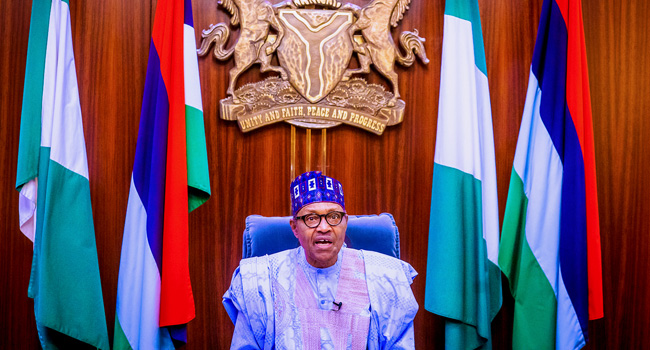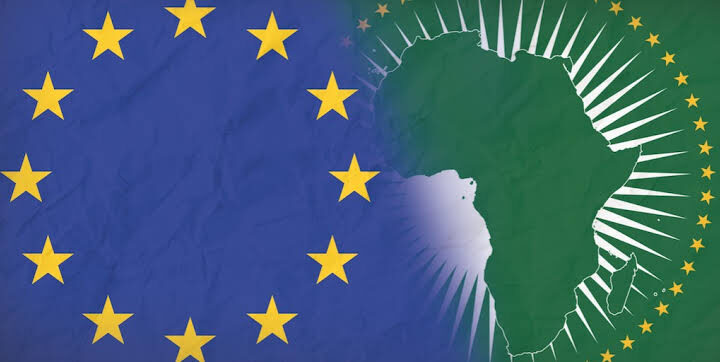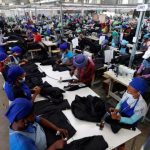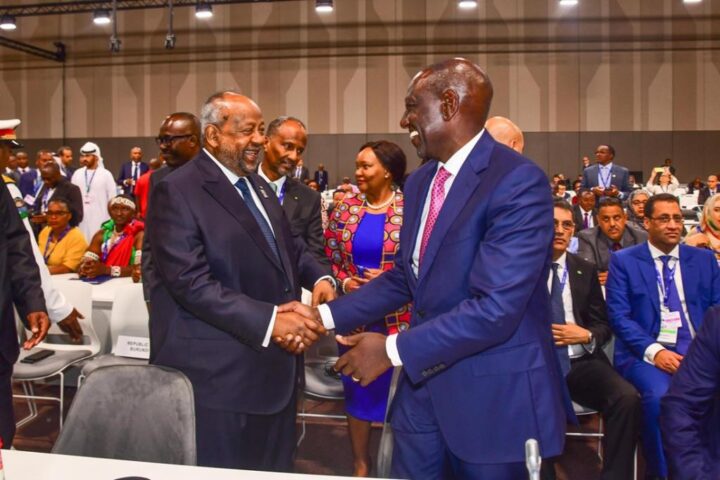IT was no celebration for millions of Nigerians as Nigeria marked its 61st independence anniversary on October 1. In the Southeast, the Indigenous People of Biafra (IPOB) separatist movement, through its sit-at-home order, grounded activities in the region. The silence on otherwise busy streets and motor parks gave a worrisome impression that indeed all is not well with the children whose mother was celebrating her 61st birthday. The overall ambience of the nation was antithetical to that of the morning of October 1, 1960, when the Green White Green flag of Nigeria was hoisted to replace the British Union Jack.
Sixty-one years ago, the air was filled with the thrill of freedom, and the promise of hope as the pioneers of Nigeria’s federalism toasted to growth and development. With an abundance of natural resources, Nigeria long enjoyed the reputation of being Africa’s biggest oil exporter, sitting also on the largest natural gas reserve on the continent.
Join our WhatsApp ChannelFast-forward to 2021. The country has achieved the unenviable reputation of importing more petroleum products than it exports because of its moribund refineries. As of 2020, Nigeria earned $27.73bn in petroleum exports, whereas it spent $43.46bn more to import refined petroleum products. Similar trends have been on for some time. Reports released yearly by the Organisation of Petroleum Exporting Countries (OPEC) showed that Nigeria exported petroleum products as follows: $27.29bn, $37.98bn, $54.51bn and $45.11bn in 2016, 2017, 2018 and 2019 respectively. Within the same period, the country imported $46.55bn, $49.51bn, $73.85bn and $93.97bn worth of petroleum products respectively.
In the midst of plenty, millions of Nigerians wallow in sordid poverty which rose to its climax in 2020 when the World Poverty Clock ticked that Nigeria had overtaken India as the country with the most people living in extreme poverty. The growing rate of secessionist agitations also suggests an increasing level of dissatisfaction among the federating states. The nation’s unity is also relentlessly challenged by insurgency and ethnoreligious crises. Little wonder the festive mood which should define the occasion of Independence Day was lacking.
As expected, the President delivered the Independence Day address which highlighted the challenges and progress so far. In the address, President Muhammadu Buhari praised Nigerians for their positive outlook and spirit of determination and surmised that the result was a united and indivisible nation. A contestable opinion.
Federal Government’s efforts to control the spread of COVID-19 through channels of public health management, and the challenges the pandemic posed to the national economy and private life, was expansively contained in the speech. The reasons for many of Nigeria’s current challenges were vigorously captured in light of the ravages of COVID-19, and we wish that Nigerians would see with the present administration that.
On the security of the country, the president asserted once again that the government was winning in the fight against insecurity. While we see necessary optimism in the president, which we share with him, the fight to restore security in the country remains herculean. The wanton killings and terrorist activities such as the ambush of dozens of military troops by Boko Haram and the displacement of residents of about 50 communities in Niger State are sour points and classic examples of what is yet to be achieved in the fight against insecurity.
In his address, the president described the security challenges as a “resurgence of insecurity.” But we can hardly tell when bandits and terrorists took a break long enough to convince the government that the fight was over. Buhari also included the numbers of Boko Haram terrorists that have surrendered. We encourage the president to also address issues emanating from the government’s decision to reintegrate and de-radicalize repentant members of the sect.
President Buhari called attention to efforts by the Federal Government to enhance the Oil and Gas sector, including the enactment of the Petroleum Industry Act (PIA) 2021 which is designed to address structural inadequacies in the industry and improve efficiency and quality output. He had received praises from many quarters, including Prime Business Africa, for ultimately shining the long-running Petroleum Industry Bill into an Act. We also reiterate that the words of caution, which trailed the PIA be addressed. With the president already seeking amendments to the Act after less than two months of passage, some of the words of caution seemed to be vindicated.
The president acknowledged improvement in the agricultural sector but blamed middlemen for increased food prices and shortages. In tackling this, he directed the concerned ministry to find lasting solutions. We add that a lasting solution must address the challenges posed to food production by the perennial farmer-herder conflicts across Nigeria. Acknowledging existential problems of the country can make the average Nigerian relate to the marks of progress and development, which the president expounded on?
For instance, in praising the implementation of the Home-grown School Feeding Programme HGSFP, the president should also have talked about its controversies such as allegations of corruption, lack of transparency and accountability and delays in payment of food vendors by the Federal Government. Again, this may stir doubt among ordinary Nigerians.
While Nigerians should remain hopeful and optimistic, as the president rightly is, ours need not be giddy optimism, which flies in the face of the country’s apparent decline and rapid degeneration into insecurity and secessionist agitations. The resilience of the average Nigerian, his perseverance to adjust and continually readjust to even the harshest conditions of living is stunning. And thankfully, the disposition doesn’t seem to be away in recent years. However, young Nigerians through social media fora and political platforms, are vigorously challenging the socio-economic and political institutions that force them to continue to endure. The citizens are rejecting the “survivor” title.
On the other hand, radical moves for secession and enforcement of directives by non-state actors, as is now rampant, needs careful attention to avoid taking the country back to July 1967. Much work is still to be done to reassure the citizens of leadership’s commitment to their welfare. Practical and effective government programmes ought to be implemented with a high level of accountability and efficiency. To recover what Nigeria has lost in time and resources to looting and corruption, all hands must be on deck. With the dwindling price of crude oil in the global market, Nigeria doesn’t need a soothsayer to emphasize the urgent need for diversification. To remedy the situation, Nigeria must diversify to increase foreign earnings through other sectors and boost the economy. Luckily, Mr President acknowledged this in his Independence Day speech. We urge more action to support efforts in this direction.
















![Gender Activism An Economic Necessity In Africa [PBA Editorial]](https://www.primebusiness.africa/wp-content/uploads/2023/11/vaw-720x480.png)
Follow Us